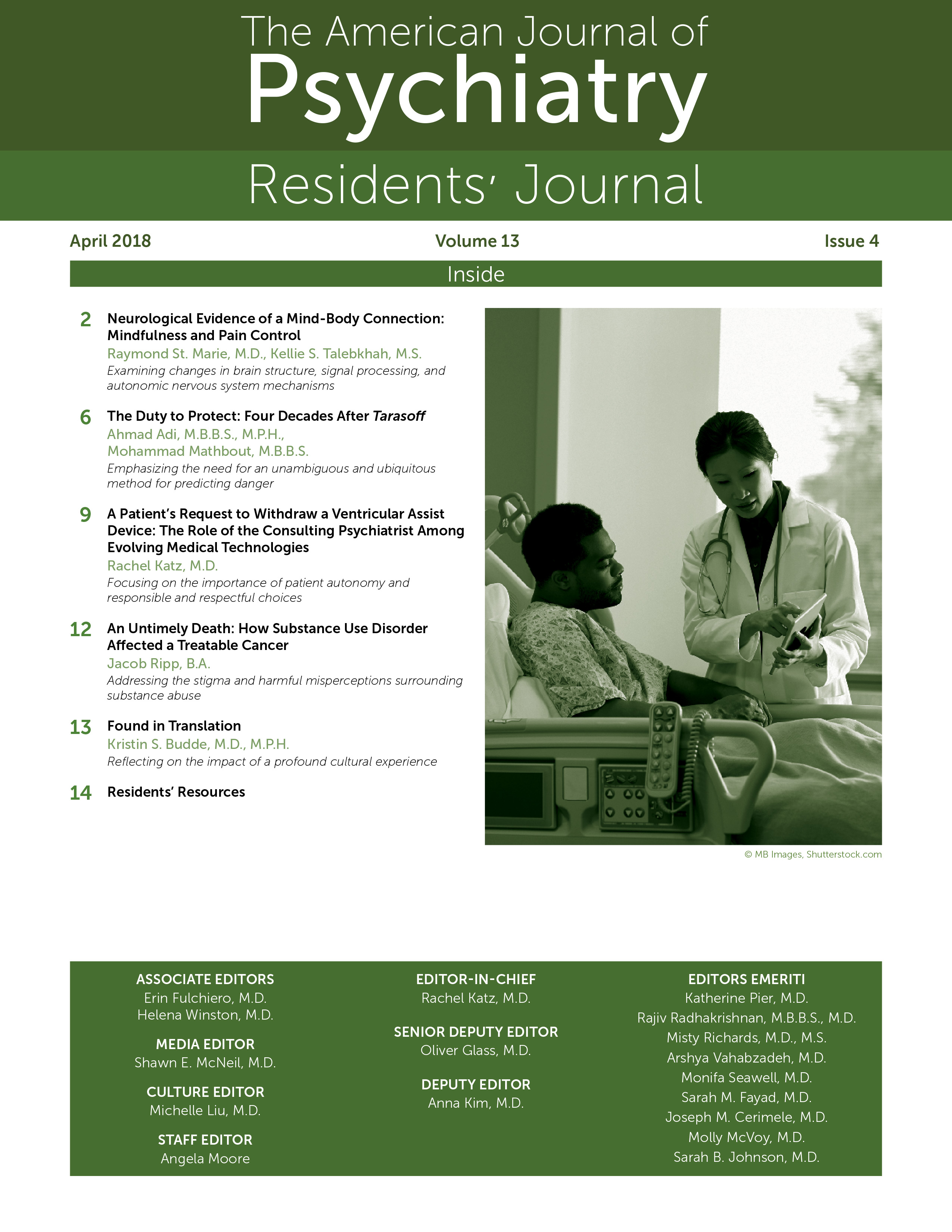"I'll bet it's testicular cancer," said my internal medicine preceptor, as he unlatched his bifocals. He only performed this gesture in two situations: when he needed to see the forest from the trees in laboratory results and scans or when the diagnosis was serious. In this case, the diagnosis was serious.
We had finished morning rounds when we received a call from the prison about a new admission. The patient was a 29-year-old man who had been incarcerated for possession of methamphetamine. He presented to our facility with hematemesis and hemoptysis. Two months before his hospital admission, he had self-diagnosed a lump on his testicle, and he received treatment with antibiotics for epididymitis, as prescribed by the prison doctor. A few hundred cell divisions later, the lump turned into a cantaloupe-sized mass and metastasized to his liver, lungs, and brain. His prognosis was bleak.
This was my second rotation as a third-year student, and the team assigned the patient to me. After listening to his heart and lungs one morning, I asked him about his condition.
Lifting his oxygen mask, he said, "I don't know, man, but why am I dying?"
I had built a good rapport with the patient and suspected that he would eventually ask this question, and I had prepared a response. However, when the moment arrived, I realized that I had not reflected enough. He had been incarcerated for methamphetamine possession but was supposed to have been released on parole several months ago. Unfortunately, he did not have anywhere to go, so he had to remain in the prison. Cancer is often random and always unfair. However, the patient's addiction and the stigma of addiction were also to blame. My prepared response about the patient's cancer would have failed. The taboo of addiction is what would kill him, so we discussed it.
"Drugs take away your family, your friends, and any support that you might have. Of all the things I've done and had done to me, I wouldn't wish meth on my worst enemy," he said, staring out the window.
My mind buzzed with questions. How did the prison doctors miss this? If he had been released on parole, would he have received better treatment? Would a loved one have cared for him? A missed diagnosis without any follow-up acutely threatened his life, but the ultimate culprit was methamphetamine use. Methamphetamine use caused him to land in a prison health care system, which failed to identify and prevent the progression of his testicular cancer. Methamphetamine use destroyed any support system comprising family or friends who might have insisted that he seek treatment. Truly, the social consequences of methamphetamine use, rather than its drug-drug or drug-disease interactions, severely affected his care for an otherwise treatable cancer.
Two weeks later, the patient passed away in the intensive care unit with only his correctional officer at his bedside. As I reflect on this experience, what is clear to me is that patients with substance use disorders are vulnerable. Due to stigma that creates both institutional and social barriers, they lack resources that might otherwise be available. As a future physician, I want to address the stigma and harmful misperceptions surrounding substance abuse, by sharing the stories of patients like the one here.
